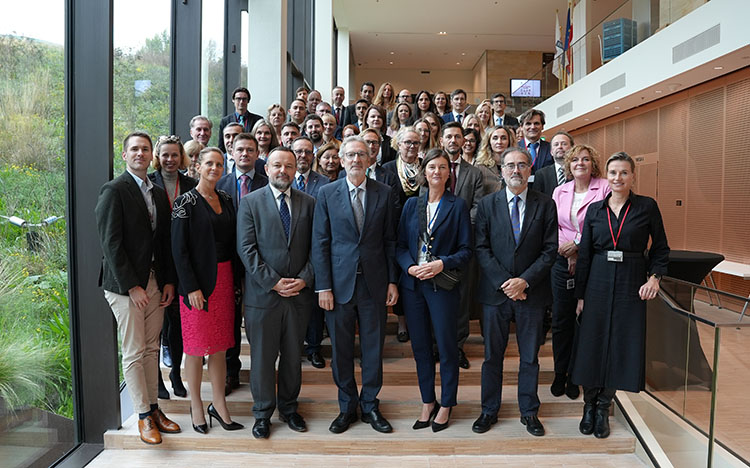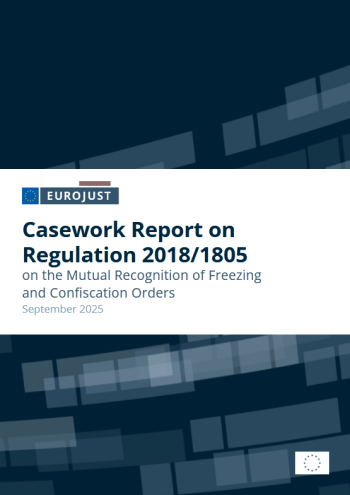
This week, from 15-16 October, Eurojust hosted the first annual meeting of the Agency’s Judicial Focus Group on Money Laundering and Asset Recovery. The event brought together key stakeholders to address the latest developments and challenges, with a particular focus on demonstrating and coordinating the multi-agency efforts in this field.
The meeting began with opening remarks that underscored the critical role of international cooperation in combating financial crimes. Participants delved into several pressing issues, including the rise of crypto-assets in money laundering schemes and the complexities of tracing funds across multiple jurisdictions. The use of professional laundering services, often disguised as legitimate businesses, was also a major point of discussion. This ‘crime-as-a-service’ method poses significant challenges due to the sophisticated methods employed by the organised crime networks and the cross-border nature of their operations.
One of the key items presented during the meeting was the recently published Eurojust Casework Report on Regulation 2018/1805 on the Mutual Recognition of Freezing and Confiscation Orders. This report, the first of its kind, offers practical guidance for national authorities, highlighting both advancements and ongoing challenges in the application of the Regulation.
Additionally, various international bodies presented their initiatives to combat money laundering. Workshops on asset recovery and money laundering provided a platform for in-depth discussions on case scenarios, with participants exploring solutions to latest challenges.
Throughout the meeting, participants emphasised the need for enhanced judicial cooperation and the effective use of technological advancements to stay ahead of evolving criminal tactics. It highlighted the Agency’s pivotal role in facilitating coordination and providing a platform for judicial practitioners to share expertise and best practices. The insights and recommendations from the event will contribute to more effective cross-border judicial cooperation and asset recovery in the future.

